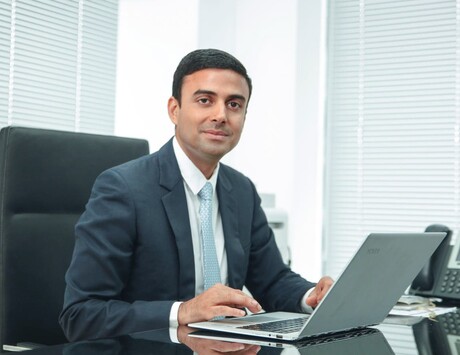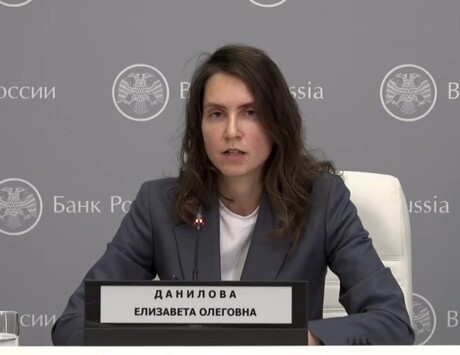Alexander Lebedev admitted on Thursday that he found the Daily Mail 'more entertaining' than his own newspaper the Independent, and indicated that its veteran editor could leave shortly to head a foundation the billionaire is setting up aimed at exposing global corruption.
The Russian proprietor and media mogul said the Independent was in danger of being "a bit boring" and needed to move closer to what people want" an
that Simon Kelner would be an "excellent candidate" to run the $10m-$20m foundation for investigative journalism that he intends to set up some time in the summer or later this year.
In interviews with the Guardian, Lebedev spoke warmly of his London Evening Standard, which is celebrating a record circulation since going free. But he said that the Indy sometimes failed to present stories in an engaging way. "I get a lot of compliments in the city [London] about the Standard. I don't get them about the Indy," he said bluntly.
Lebedev said that readers confronted on aeroplanes with a complimentary copy of the Daily Mail and the Independent were far more likely to read the Mail first. "The Daily Mail is more entertaining… But my opinion is as a reader and not as a proprietor." The Indy should contemplate "changing" its treatment of certain topics to make them "closer to what people want", he told the Guardian.
The Russian said he was "very happy" with Simon Kelner but said that he needed "one person to run one paper" and that "if you want to change the paper, you have to change the person". He would not be drawn, however, on the names of any journalists he could imagine as editor of the daily title should there be a change at the top.
The idea behind the investigative journalism foundation – which is likely to be based in London – is that there would be a fund that would be "open to journalists working anywhere", because it would not be possible for reporters on his London papers or his Russian title, Novaya Gazeta, to investigate every story about political corruption. It would be personally independent of him, he said, adding that he hoped to recruit the likes of Gordon Brown or playwright Tom Stoppard to the board.
The Russian businessman was speaking during his first visit to London for some months. His trip was delayed after British consular authorities took two months to grant his visa, prompting him to send an indignant tweet. Lebdedev said that the Standard – which he bought in 2009 and turned into a free newspaper – had a strong editorial team, and was poised to make a profit in the first half of 2012.
Lebedev said he didn't exclude the possibility that his other British media titles – the Independent, Independent on Sunday and i – would emulate the Standard and eventually go free. (The i's circulation was "holding up" at 160,000-170,000, he said.) He stressed, however, this wouldn't happen soon. "Calculations have to be provided. It's not on the agenda," he said.
He also said he expected the "Evening Standard and the Independent to work together more closely" in coming months, saying that there would be "cost cutting in which some jobs would be sacrificed". But he ruled out any bid for the Daily Express – tentatively put up for sale by Richard Desmond earlier this year – saying he was "not interested in tabloid journalism".
The Russian also repeatedly floated the possibility of a merger between the Independent and the Guardian – even though the latter title, owned ultimately by the Scott Trust – is not for sale. He said he was "only partly joking" when he made the unlikely suggestion, indicating he would be "prepared to be a minority shareholder" although he added that he currently did not have the liquid capital available to help finance too many newspapers.
Lebedev's business empire has come under increasing pressure since armed balaclava-wearing police raided his bank, the National Reserve Corporation, last summer. Today Lebedev said he planned to withdraw from many of his business ventures, and was even prepared to give the government his airline company Red Wings. He is selling his chain of hotels and leisure resorts in Ukraine, he said, as well as two Airbus planes in Bulgaria belonging to his defunct airline company Blue Wings.
However, he said he would hang on to his bank, potato farm and British newspapers – which he described as "not businesses". The reason for the sell down was to allow him to clarify the way people saw him; he said he was tired of people saying he had an ulterior commercial motive for owning newspapers when he did not.
Asked how much money he had, Lebedev said his bank had $3.6bn in assets, and that his diverse business empire was completely debt free. But he said that at the moment he didn't have deep pockets, and that as he sold assets such as his residual holdings in Aeroflot and Gazprom that he would do well to raise $2bn.
At home, Lebedev last month unexpectedly endorsed a new political initiative by prime minister Vladimir Putin, the All-Russian People's Front. The decision raised eyebrows since Lebedev has previously portrayed himself as a semi-opposition figure and an outspoken opponent of Moscow's former mayor Yuri Luzhkov. Lebedev also owns Novaya Gazeta, Russia's leading independent newspaper, and a thorn in the Kremlin's side.
Observers see the front as an artificial movement, designed to drum up popular support for Putin's likely return as Russia's president at elections next spring. On Thursday, however, Lebedev said the Putin-led United Russia party had refused to register him as a front supporter.
He also said his backing for the movement was conditional on it embracing his ideas for a return to competitive elections, independent judiciary and measures against rampant corruption in Russia.
On the way to the interview Lebedev said he had chatted to his black cab driver, without revealing his identity as the Standard's Moscow-based owner. He recalled: "I asked the driver, has the Standard changed since the Russians bought it?" The driver said he liked the paper but that it was still "too pro-Tory".



